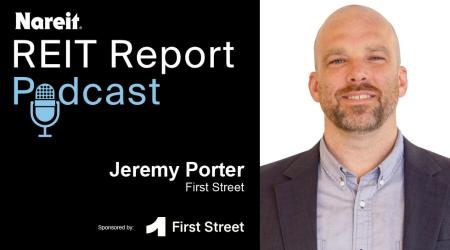The family of a deceased reverse mortgage borrower in Connecticut, who sought to reopen a case involving the foreclosure of their relative’s home after her death, have been denied a motion to reopen the case after a judge found that standard procedures were followed.
This is according to court documents reviewed by HousingWire’s Reverse Mortgage Daily (RMD). The case was first reported by Mortgage Professional America.
Case details
Foreclosure can be a charged topic on its own. But adding reverse mortgages to the conversation — a topic that’s already sensitive for many — can escalate the controversy.
Following the death of a reverse mortgage borrower, foreclosure as a process to settle the debt on the loan is a relatively common method of disposition. This is particularly true for a loan to a deceased borrower who has been determined to have no heirs.
But in an instance where they are involved, heirs in a bequest position are usually given certain opportunities to settle the debt. These include the sale of the home, a deed in lieu of foreclosure, or simply paying the balance if they have the resources to do so.
But in the case in Connecticut, the heirs of the deceased borrower — who took out her Home Equity Conversion Mortgage (HECM) loan in 2015 before dying in December 2020 — argued that the lender’s initiation of the foreclosure, a process that began in October 2021, did not receive proper notice. Three days before a foreclosure sale was scheduled to start, the heirs filed for an emergency delay.
But the judge found that the lender — Mortgage Assets Management (MAM), the successor entity to original lender Reverse Mortgage Solutions — had made attempts to contact the borrower’s son.
Failing that, an online notice of foreclosure was posted to the Connecticut state marshal’s website. MAM also attempted to serve the borrower’s son through both the Connecticut secretary of state’s office and certified mail.
But the heirs who aimed to challenge the sale — the children of the borrower’s son — stated that their father died in 2021. They believed his death occurred prior to the initiation of the foreclosure, although it was later determined he died shortly afterward. They also stated they did not receive notice of the foreclosure until five days before the sale was scheduled to take place.
Ultimately, however, the judge sided with MAM. The court concluded that “the heirs failed to assert that a good defense existed at the time that judgment was rendered,” adding that some of the elements the heirs brought up later were not included in their original motions seeking to stop the sale.
The judge ruled that the heirs failed to meet the specific legal requirements under Connecticut state law to gain their desired outcome.
A ‘family decision’
The relationship between the foreclosure process and the end of a reverse mortgage was a significant part of the testimony of Peter Bell, the former CEO of the National Reverse Mortgage Lenders Association (NRMLA), when he appeared as a witness at a congressional committee hearing in 2019.
“Critics and some consumer advocates express a belief that lenders actually want to foreclose,” Bell said. “This is misguided; lenders are in the business of making loans, not owning real estate.
“Foreclosure is oftentimes the routine manner of terminating a reverse mortgage transaction. When a borrower passes away and the loan balance exceeds the value of the home, there is little incentive for the heirs to take any other action.”
In other cases, he added, a lender cannot locate a next of kin while also acting within U.S. Department of Housing and Urban Development (HUD) time frames to handle the disposition of a property.
This is often why reverse mortgage professionals advocate for the inclusion of family members and other trusted advisers in the application and origination process.
In 2020, an official with the Better Business Bureau suggested that reverse mortgages should be a “family decision.” Mandatory counseling is part any loan granted under the Federal Housing Administration’s HECM program.


